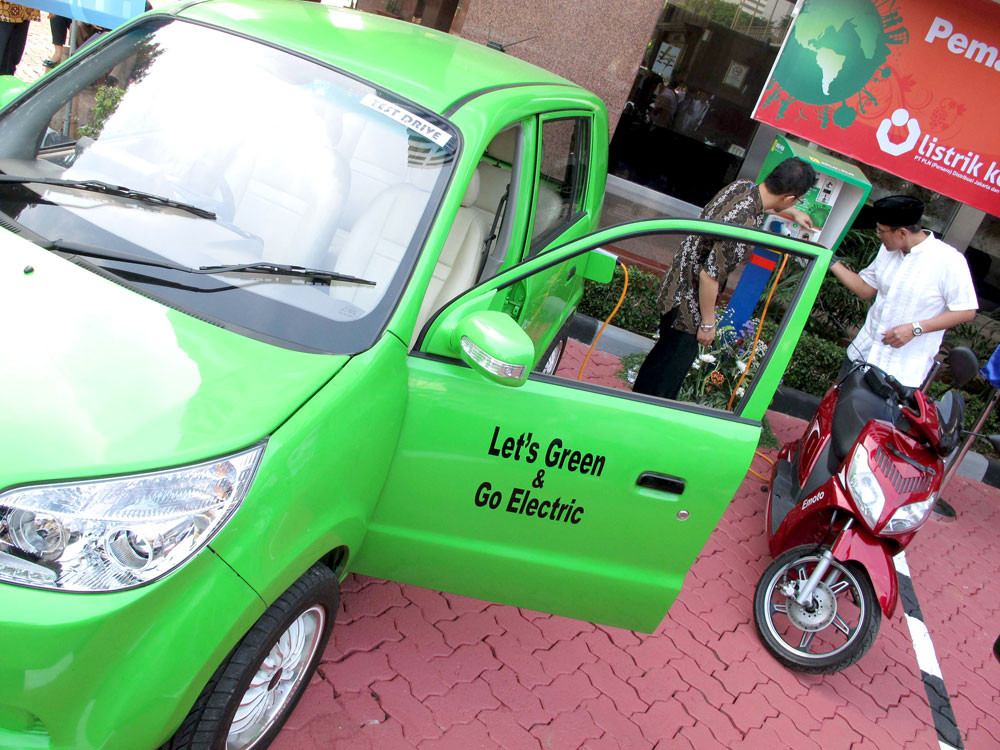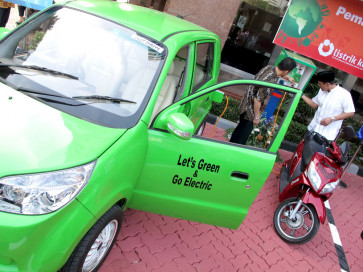Popular Reads
Top Results
Can't find what you're looking for?
View all search resultsPopular Reads
Top Results
Can't find what you're looking for?
View all search resultsThe misconception of electric cars
The misconception that electric cars are close to taking over and will solve climate change is dangerous, because it directs our attention away from the technological breakthroughs in green energy generation needed to reduce rising temperatures — and away from innovations needed to cut air pollution.
Change text size
Gift Premium Articles
to Anyone
I
f you listen to the media, a green automotive future has arrived and a tsunami of electric cars are outselling gasoline and diesel around the world, transforming the planet and solving climate change.
We need a reality check. Battery-powered electric vehicles are fairly popular in urban China and California, as well as a few countries that subsidize their drivers heavily. But globally, fewer than 0.3 percent of all cars are pure electric, and across Europe, BMW says customers don’t want them.
Unsurprisingly given the price-tag, electric cars are often playthings for rich people. One United States study shows the richest quarter of people receive almost all the public money spent on electric car subsidies.
Moreover, electric cars in the US are driven fewer miles on average each year than gasoline-powered vehicles: 11.200 kilomters compared to 16,400 km for gasoline and diesel-powered vehicles. Combine this with the fact that 90 percent of households that buy an electric car also have a conventional car that is driven further, and a clear picture emerges: most electric vehicles are a “second car” used for shorter trips like shopping and small errands — and for virtue signaling.
But aren’t electric cars better for the environment? Barely. While no CO₂ emissions come directly from driving electric vehicles, they are powered by electricity largely produced from fossil fuels in many parts of the world. More energy is also used to manufacture electric vehicles — and, in particular, their batteries — and this energy is usually reliant on fossil fuel.
Indeed, a new study from the International Energy Agency (IEA) shows that an electric car with a 400 km range and charged with electricity produced at the global average will have to be driven 60,000 km just to pay off its higher CO₂ emissions in production. That means a new electric car driven the average 11,200 km each year will only have paid off its carbon debt after 5 years.
The IEA hopes the world could reach 130 million electric cars in 10 years — a breathtaking ask given we have spent decades reaching just over 5 million. Even if we could do that, emissions would be reduced by just 0.4 percent of global emissions. In the words of IEA director Fatih Birol, “If you think you can save the climate with electric cars, you’re completely wrong.”


















